5 products
-
All Over Butter - Original Formula
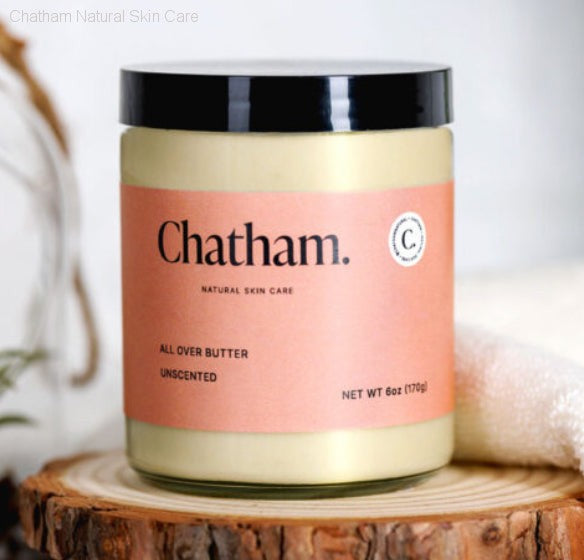 Vendor:All Over Butter - Original FormulaChatham Natural Skin Care
Vendor:All Over Butter - Original FormulaChatham Natural Skin Care- Regular price
-
$19.99 - Regular price
-
- Sale price
-
$19.99
Quick view
-
Ultimate Hydration
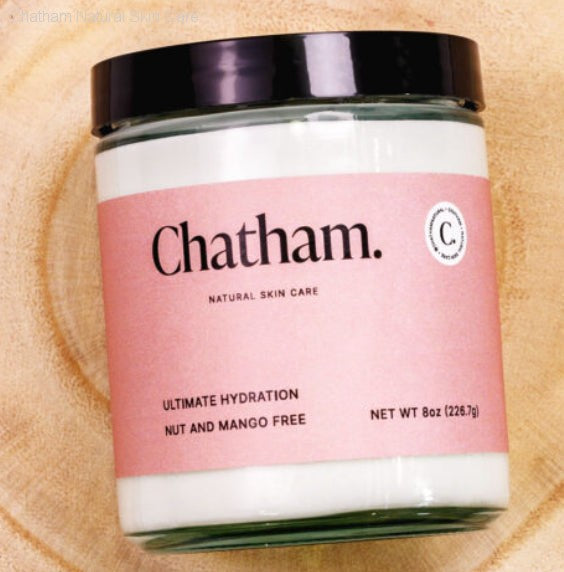 Vendor:Ultimate HydrationChatham Natural Skin Care
Vendor:Ultimate HydrationChatham Natural Skin Care- Regular price
-
$19.99 - Regular price
-
$0.00 - Sale price
-
$19.99
Quick view
-
All Over Butter Eczema Therapy - 3oz
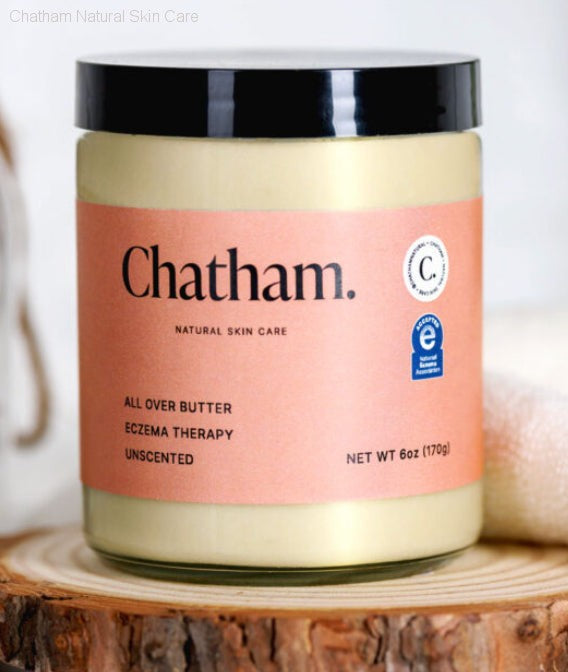 Vendor:All Over Butter Eczema Therapy - 3ozChatham Natural Skin Care
Vendor:All Over Butter Eczema Therapy - 3ozChatham Natural Skin Care- Regular price
-
$15.99 - Regular price
-
- Sale price
-
$15.99
Quick view
-
All Over Butter - Eczema Therapy 6oz
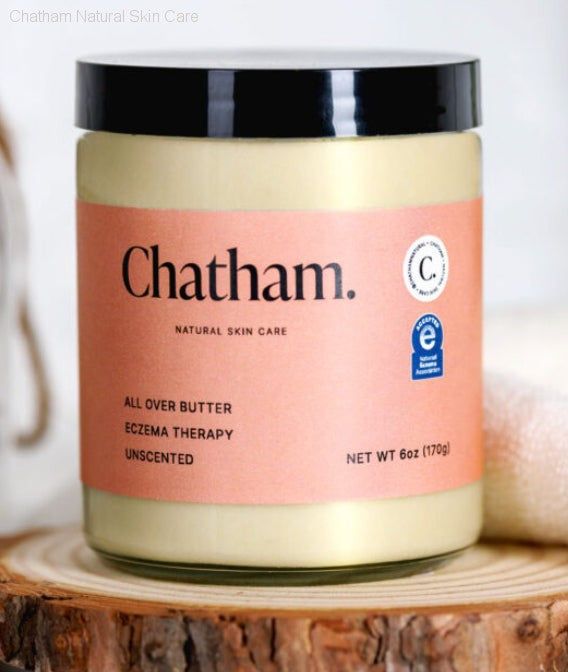 Vendor:All Over Butter - Eczema Therapy 6ozChatham Natural Skin Care
Vendor:All Over Butter - Eczema Therapy 6ozChatham Natural Skin Care- Regular price
-
$24.99 - Regular price
-
- Sale price
-
$24.99
Quick view
-
Ultimate Hydration 3oz - Nut Free
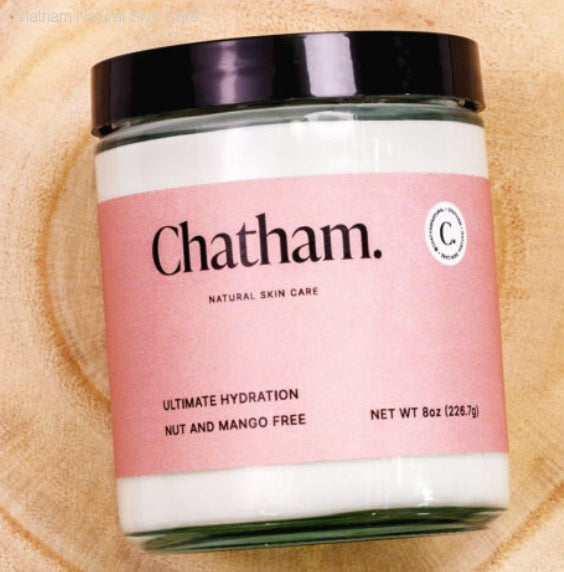 Vendor:Ultimate Hydration 3oz - Nut FreeChatham Natural Skin Care
Vendor:Ultimate Hydration 3oz - Nut FreeChatham Natural Skin Care- Regular price
-
$14.99 - Regular price
-
$0.00 - Sale price
-
$14.99
Quick view
Healthy, hydrated skin starts here. All Over Butter Eczema Therapy was created to bring lasting moisture and relief to dry, sensitive, and eczema-prone skin using only clean, gentle ingredients you can trust. Whether you’re soothing daily dryness or caring for stubborn eczema patches, this is your go-to solution for calm, comfortable skin that glows naturally.
Pair it with our Oatmeal Soap or Body & Scalp Oil for the ultimate eczema-care routine—crafted with love by Chatham Natural Skin Care, and trusted by families everywhere.






